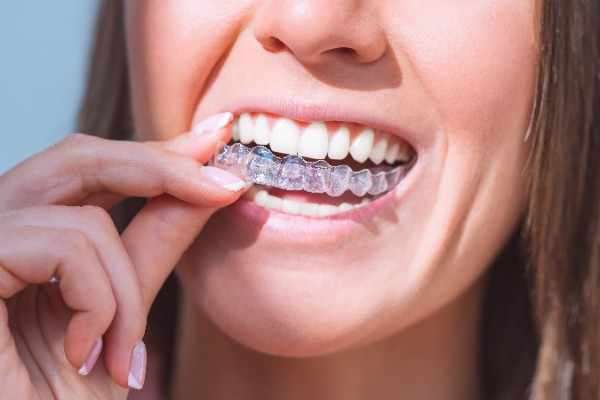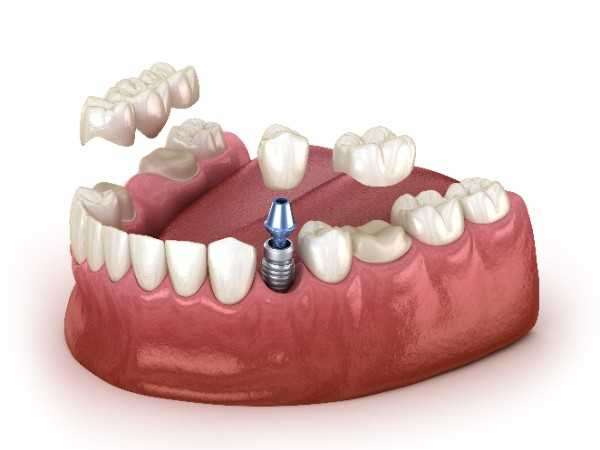When it comes to achieving a confident, radiant smile, dental implants are often the key to restoring both function and aesthetics. If you’re in Ryde and considering dental implants, Smilo Dental Implants Group offers comprehensive services tailored to meet individual needs. Whether you need single tooth replacement, a full arch restoration, or Invisalign treatment, our experienced team is here to provide you with the best care. In this blog, we’ll explore different types of dental implants, the ideal candidates for each, considerations before and after the procedure, and much more to help you achieve a smile you’ll be proud of.
What Are Dental Implants?
Dental implants are titanium posts surgically placed into the jawbone to support replacement teeth. Unlike traditional dentures, implants are a permanent solution that functions like natural teeth. They provide superior comfort, stability, and aesthetics. dental implants Ryde are ideal for patients who have lost one or more teeth due to injury, disease, or decay.
Types of Dental Implants
Dental implants can be categorised into different types, depending on the specific needs of the patient. Here are the main types of dental implants we offer at Smilo Dental Implants Group:
- Single Tooth Implants
- Who’s Ideal: Perfect for individuals who have lost a single tooth.
- Procedure: A titanium post is inserted into the jawbone, followed by a crown to restore the tooth.
- Benefits: Helps preserve bone density and maintain the alignment of surrounding teeth.
- Multiple Tooth Implants
- Who’s Ideal: Suitable for patients missing several adjacent teeth.
- Procedure: Implants are placed to replace multiple teeth, with bridges or crowns on top.
- Benefits: Restores both function and aesthetics while preventing bone loss.
- All-on-4® Implants
- Who’s Ideal: Ideal for patients who have lost most or all of their teeth on either the upper or lower jaw.
- Procedure: Four implants are strategically placed in the jawbone, and a full arch of teeth is fixed on top.
- Benefits: A cost-effective solution for full arch restoration, providing stability without the need for bone grafting.
- Zygomatic Implants
- Who’s Ideal: Suitable for individuals with severe bone loss in the upper jaw.
- Procedure: Implants are placed in the cheekbone (zygomatic bone), offering an alternative to traditional implants.
- Benefits: Ideal for those who cannot undergo bone grafting due to insufficient bone in the upper jaw.
- Mini Implants
- Who’s Ideal: Perfect for patients with narrow or shallow jawbones.
- Procedure: Smaller titanium posts are used to secure dentures or crowns.
- Benefits: Minimally invasive and requires less bone density.
Before and After Dental Implants
Before the Procedure:
- Consultation: During your initial consultation, we assess your oral health and determine if dental implants are suitable for you.
- Preparation: We may take X-rays or CT scans to evaluate your bone structure and jaw alignment. If needed, bone grafting or sinus lifts may be required.
- Oral Hygiene: It's essential to follow good oral hygiene practices to reduce the risk of infection before the procedure.
After the Procedure:
- Initial Healing: After the implant is placed, there will be a healing period of 3 to 6 months as the implant fuses with the jawbone.
- Dietary Restrictions: For the first few weeks, you should consume soft foods like mashed potatoes, soup, and smoothies.
- Oral Care: Follow post-operative care instructions carefully to ensure proper healing, including avoiding hard foods and smoking.
What to Eat and What Not to Eat After Dental Implants
What to Eat:
- Soft foods: Mashed potatoes, scrambled eggs, soup, yogurt, and smoothies.
- Cool or lukewarm foods: Avoid hot foods right after surgery.
- Nutrient-dense foods: Eat a balanced diet to promote healing, rich in vitamins and minerals.
What Not to Eat:
- Hard or crunchy foods: Such as nuts, chips, and raw vegetables.
- Sticky foods: Avoid sticky foods that could dislodge the implant.
- Hot foods: Foods that are too hot can irritate the implant area.
- Alcohol: Should be avoided, particularly during the early healing phase, as it may hinder recovery.
Fact Numbers About Dental Implants
Here are some important facts about dental implants that highlight their benefits:
Fact | Number/Statistic |
Success Rate | 95-98% |
Dental Implants Lifespan | 25+ years |
Bone Preservation | 80% bone retention in the first year |
Recovery Time | 3-6 months for full healing |
Cost of Dental Implants | £1,500 - £3,000 per implant |
Disclaimer: The statistics provided in this table are based on general clinical data and industry averages. Individual results may vary depending on factors such as oral health, lifestyle, and adherence to aftercare guidelines. For personalised advice and accurate cost estimates, please consult with a qualified dental professional.
Conditions That Require Dental Implants
Dental implants are recommended in the following conditions:
- Severe Tooth Loss: Whether due to injury, decay, or gum disease, dental implants are an excellent way to replace missing teeth.
- Bone Loss: If there is significant bone loss, dental implants help restore bone density and provide a strong foundation for the new teeth.
- Cosmetic Concerns: Dental implants offer a natural-looking solution for patients who are concerned about their appearance.
- Functional Needs: Missing teeth can impact your ability to eat, speak, and smile confidently. Dental implants restore full functionality.
Why You Need Dental Implants
Dental implants offer long-term benefits:
- Restore Functionality: Implants enable you to eat and speak comfortably, just like natural teeth.
- Maintain Facial Structure: Implants help prevent bone loss, preserving the shape of your face.
- Long-Term Solution: Unlike dentures, which may require replacement, implants can last a lifetime with proper care.
- Enhanced Aesthetics: Implants look and feel like natural teeth, improving your smile and boosting your confidence.
Invisalign: A Perfect Complement to Dental Implants
For those looking to straighten their teeth before or after dental implants, invisalign Ryde is a fantastic option. This clear aligner system allows you to achieve a straighter smile without the discomfort and appearance of traditional metal braces. Invisalign is perfect for patients who want to improve their smile’s alignment without the hassle of brackets and wires.

Conclusion
At Smilo Dental Implants Group, we take pride in transforming smiles with expert care and advanced dental solutions. Whether you're considering dental implants in Ryde to replace missing teeth or exploring Invisalign in Ryde for a straighter, more confident smile, our dedicated team is here to support you at every step. From your initial consultation to tailored treatment plans and attentive aftercare, we focus on delivering results that last. Our approach is patient-centred, combining innovation with comfort to ensure you receive the highest standard of care. Let us help you regain your confidence and enjoy the benefits of a healthier, more radiant smile. Book your appointment today and take the first step towards your ideal smile.




